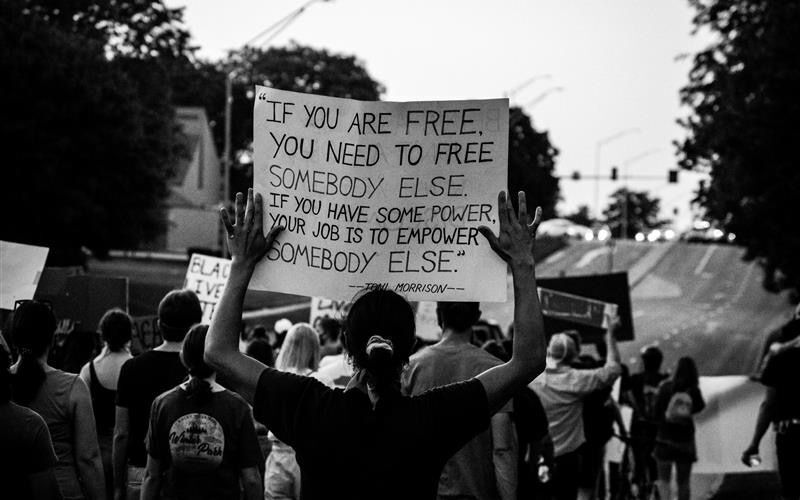Photo by Kalea Morgan on Unsplash
Compassion and social justice are deeply interconnected and mutually reinforcing. Here's how they are related:
- Foundation of Empathy: Compassion serves as the foundation for social justice by fostering empathy and understanding towards others, and creating a pathway to compassionate action. It involves recognizing the suffering and struggles of individuals and communities, which motivates a desire to alleviate their pain and promote justice.
- Human Dignity and Equality: Both compassion and social justice are rooted in the belief that every human being possesses inherent worth and dignity. They affirm the principle of equality, recognizing that all individuals deserve fairness, respect, and the opportunity to thrive regardless of their background, identity, or circumstances.
- Addressing Structural Injustices: Social justice aims to address systemic injustices and disparities in society, such as poverty, discrimination, and inequality. Compassion plays a vital role in identifying and addressing these issues by fostering a deep sense of concern for the well-being of marginalized individuals and communities.
- Challenging Oppression: Compassion fuels the drive to challenge and dismantle oppressive systems and practices. It motivates individuals to speak out against discrimination, advocate for equal rights, and work towards creating inclusive and just societies.
- Advocacy and Action: Both compassion and social justice require active engagement and advocacy. Compassion inspires individuals to take action, through grassroots organizing, policy advocacy, and community service, in order to promote systemic change and alleviate the suffering of marginalized populations.
- Intersectionality: Compassion and social justice recognize our common humanity and the interconnectedness of various forms of oppression, including those based on race, gender, class, sexuality, ability, and more. They acknowledge that social injustices are often intertwined and intersecting, and that addressing one form of injustice necessitates addressing others as well.
- Redistribution of Resources: Social justice aims to create a more equitable distribution of resources, opportunities, and power within society. Compassion compels individuals to support efforts that prioritize the needs of marginalized groups and work towards a more just allocation of resources, opportunities and power.
- Building Inclusive Communities: Compassion and social justice foster the creation of inclusive communities that embrace diversity and celebrate the richness of different perspectives and experiences. They promote dialogue, understanding, and collaboration across societal divides, working towards a more inclusive and harmonious society.
By combining compassion and social justice, individuals and communities can work towards creating positive and lasting change. They complement each other, with compassion providing the emotional motivation and social justice providing the framework for systemic transformation. Together, they form a powerful force in addressing inequality, promoting fairness, and creating a more compassionate, just, and peaceful world.

